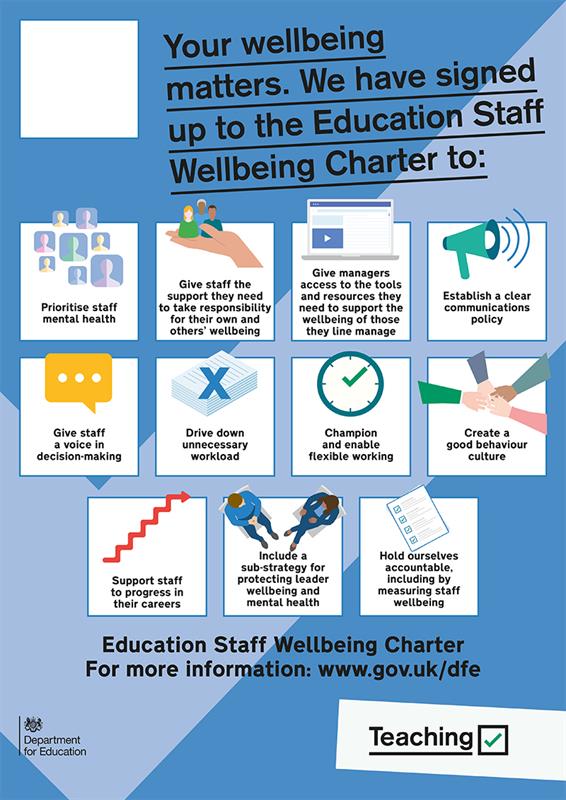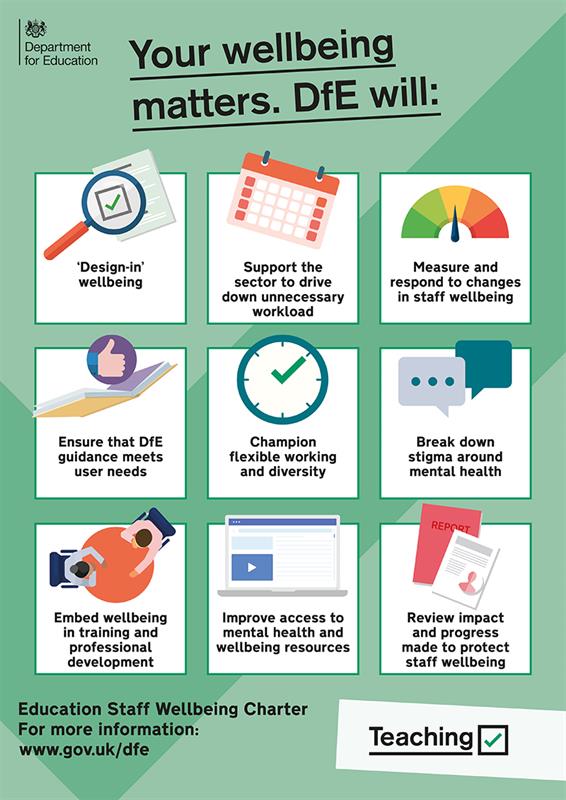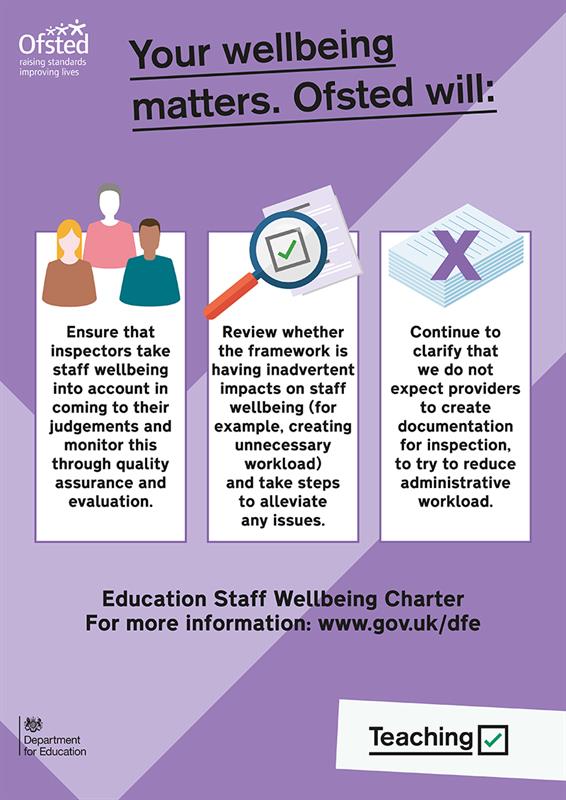The Charter also includes nine pledges from the Department for Education (DfE) to protect school staff wellbeing, while Ofsted has committed to a further three.
The Education Staff Wellbeing Charter has been co-created with organisations including education unions, schools, and charities Education Support and Mind among others.
The DfE defines wellbeing as: “A state of complete physical and mental health that is characterised by high-quality social relationships.”
Among its commitments, the DfE has pledged to “design-in” wellbeing to its policy-making: “We will integrate wellbeing into DfE’s school workload policy test, where appropriate, considering the impact of policy changes on staff wellbeing.”
It has also pledged to “remove unnecessary burdens, including improving how we collect data”.
Ofsted, meanwhile, has promised to review its 2019 inspection framework to check for any “inadvertent impacts on staff wellbeing”. Inspectors, it says, will also take staff wellbeing into account when they make their judgements on schools.
As part of its pledges, Ofsted has renewed its promise to make clear to schools that:
- It does not grade individual lessons or people.
- It does not require lessons to be planned in a certain way or for lessons plans to be provided to inspectors.
- It does not require schools to prepare for inspections.
- It does not require schools to provide information in any specific format.
For schools, meanwhile, the pledges include promoting staff voice, training line managers to ensure they can support the staff they work with, and championing flexible working and diversity.
The charter states: “We will work to create a supportive culture around flexible working. We will agree an approach that not only recognises employees’ legal right to request flexible working but acknowledges that for some staff working flexibly can be a key means of protecting and enhancing their personal wellbeing. We will work to promote diversity – eliminating discrimination, and advancing equality of opportunity.”
The Charter’s 11 commitments for schools are:
- Prioritise staff mental health (including tackle mental health stigma within the organisation, promoting an open and understanding culture)
- Give staff the support they need to take responsibility for their own and other people’s wellbeing
- Give managers access to the tools and resources they need to support the wellbeing of those they line manage
- Establish a clear communications policy
- Give staff a voice in decision-making
- Drive down unnecessary workload
- Champion flexible working and diversity
- Create a good behaviour culture
- Support staff to progress in their careers
- Include a sub-strategy for protecting leader wellbeing and mental health
- Hold ourselves accountable, including by measuring staff wellbeing

The Charter’s nine commitments for the DfE are:
- “Design-in” wellbeing
- Support the sector to drive down unnecessary workload
- Measure and respond to changes in staff wellbeing
- Ensure that DfE guidance meets user needs
- Champion flexible working and diversity
- Break down stigma around mental health
- Embed wellbeing in training and professional development
- Improve access to mental health and wellbeing resources
- A review of the progress made against these commitments in 2023

The Charter’s three commitments for Ofsted are:
- We will ensure that inspectors take staff wellbeing into account in coming to their judgements and monitor this through quality assurance and evaluation.
- We will review whether the framework is having inadvertent impacts on staff wellbeing (for example, creating unnecessary workload) and take steps to alleviate any issues.
- We will continue to clarify that we do not expect providers to create documentation for inspection, to try to reduce administrative workload.

The DfE is now asking schools to display the Education Staff Wellbeing Charter materials to “show staff that you take their wellbeing seriously”. It hopes the Charter will help schools to “open a conversation with staff about their wellbeing and mental health” and create a staff wellbeing strategy and wellbeing-focused culture.
Guidance published this week includes advice on using the Charter as well as poster downloads and links to a range of further resources and organisations (DfE, 2021).
The DfE has also appointed Timewise – a national flexible working training provider – to train staff to implement flexible working where possible, and eight flexible working ambassador schools have been appointed to champion best practice and work with other schools.
- DfE: Guidance: Education staff wellbeing charter , May 2021: www.gov.uk/guidance/education-staff-wellbeing-charter
